2014 Center for Science of Information Summer School
Hosts, Speakers, Panelists and Facilitators

Tamara Berdyyeva
Janssen Research & Development, LLCTamara K Berdyyeva is currently a Postdoctoral Fellow at the Neuroscience Department at Janssen, Pharmaceutical Companies of Johnson and Johnson. Tamara holds B.S. and M.S. degrees in Physics and Ph.D. degree in Biological Sciences (Carnegie Mellon University and Center for the Neural Basis of Cognition, Pittsburgh, PA). At Carnegie Mellon, she implemented a novel technique of simultaneous recording of activity of multiple neurons in several areas of brain in non-human primates. During her postdoctoral appointment at Salk Institute, she worked with interdisciplinary team to develop an optogenetic approach to control genetically modified interneurons in primate brain. Currently, she is pioneering the use of large scale in-vivo brain calcium imaging in drug discovery (Janssen).
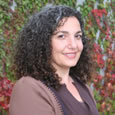
Andrea Chiba
Temporal Dynamics of Learning, NSF Science of Learning CenterAndrea Chiba is co-director of the Temporal Dynamics of Learning Center, one of six Science of Learning Centers funded by NSF, and an associate professor in Cognitive Science and the Program in Neuroscience at UCSD. She leads the Interacting Memory Systems Network of the TDLC, coordinating research on the timing of interactions among memory systems.

Todd Coleman
Bioengineering, UCSDTodd P. Coleman received B.S. degrees in electrical engineering (summa cum laude), as well as computer engineering (summa cum laude) from the University of Michigan. He received M.S. and Ph.D. degrees from MIT in electrical engineering, and did postdoctoral studies at MIT in neuroscience. From 2006-2011, he was an Assistant Professor of ECE and Neuroscience at the University of Illinois. He is currently an Associate Professor in Bioengineering at UCSD, where he directs the Neural Interaction Laboratory and co-Directs the Center for Perinatal Health. His research is highly inter-disciplinary, lying at the intersection of bio-electronics, medicine, and machine learning. He is conducting research in wearable health by wedding his research group's expertise in large-scale analytics with their recent development of "epidermal electronics", featured in Science in 2011. Current applications of those synergies include perinatal health, chronic disease management, and cognitive monitoring during aging. Dr. Coleman is a science advisor for the Science & Entertainment Exchange (National Academy of Sciences) and his research has been featured on CNN, BBC, and the New York Times.
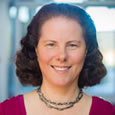
Pamela Cosman
Electrical & Computer Engineering, UCSDPamela Cosman joined UCSD in July 1995. She obtained her B.S. with Honor in Electrical Engineering from the California Institute of Technology in 1987, and her M.S. and Ph.D. in Electrical Engineering from Stanford University in 1989 and 1993, respectively. She was an NSF postdoctoral fellow at Stanford University and a Visiting Professor at the University of Minnesota during 1993-1995. Since 1995, she has been with the faculty of the department of Electrical and Computer Engineering at UCSD, where she is currently a Professor. She was the Director of the Center for Wireless Communications from 2006 to 2008. Dr. Cosman is the recipient of the ECE Departmental Graduate Teaching Award, a Career Award from the National Science Foundation, a Powell Faculty Fellowship, and a Globecom 2008 Best Paper Award. She was the Editor-in-Chief (2006-2009) of the IEEE Journal on Selected Areas in Communications, and an associate editor of several other journals. She is a member of Tau Beta Pi and Sigma Xi, and a Fellow of the IEEE. She is the author of over 150 papers and book chapters in the areas of image/video compression, image quality evaluation,and biomedical image processing.
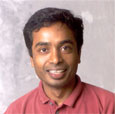
Ananth Grama
Computer Science, Purdue UniversityProfessor Grama's research interests span the areas of parallel and distributed computing architectures, algorithms, and applications. His work on distributed infrastructure deals with development of software support for dynamic clustered and multiclustered environments. More recent work has focused on resource location and allocation mechanisms in peer-to-peer networks. His research on applications has focused on particle dynamics methods, their applications to dense linear system solvers, and fast algorithms for data compression and analysis. In 2013, Grama was inducted as a Fellow into the American Association for the Advancement of Science.
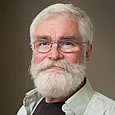
Robert Gray
Emeritus, Electrical Engineering, StanfordRobert M. Gray is the Alcatel-Lucent Technologies Professor of Communications and Networking in the School of Engineering, Emeritus, and Professor of Electrical Engineering, Emeritus, at Stanford University and a Research Professor at Boston University. He is a Fellow of the IEEE and the Institute for Mathematical Statistics and he was a 1981--82 Fellow of the John Simon Guggenheim Foundation. His awards include an Education Award, Meritorious Service Award, Technical Achievement Award, and Society award from the IEEE Signal Processing Society, a Golden Jubilee Award for Technological Innovation and the Claude E. Shannon Award from the IEEE Information Theory Society, and the Jack S. Kilby Signal Processing, Centennial, and Third Millennium Medals from the IEEE. He received a U.S. Presidential Award for Excellence in Science, Mathematics and Engineering Mentoring (PAESMEM) and a Stanford University President's Award for Excellence Through Diversity. He is a member of the National Academy of Engineering.
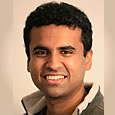
Pulkit Grover
Electrical & Computer Engineering, Carnegie Mellon UniversityPulkit Grover is an assistant professor at ECE, Carnegie Mellon. He received his Ph.D. from UC Berkeley in December 2010, following which he spent a year at Stanford as a postdoc in "green" communications. His research interests are in decentralized control, information theory, and low-power circuits. He is particularly interested in interdisciplinary research directed towards obtaining fundamental limits to system-level power consumption in wireless communications, and developing a theory of information for decentralized control of cyber-physical systems.
Dr. Grover has received an NSF CAREER award (2014), the 2012 Leonard G. Abraham award (from the IEEE Communications Society for his work on low-power communications), and the best student paper award at the IEEE Conference in Decision and Control (CDC) 2010. For his dissertation research, he received the Eli Jury Award from the Department of Electrical Engineering and Computer Sciences at UC Berkeley.

Seemeen Karimi
Electrical & Biological Engineering, UCSDSeemeen Karimi graduated from UCSD with a PhD in Electrical Engineering (Signal and Image Processing) this past June. Her research interests are in computed tomography (CT) and computer vision. Her dissertation was on metal artifact reduction in CT for medical imaging and aviation security. Previously, Seemeen worked for a CT equipment manufacturer, Analogic Corp. She then joined a start-up, NeuroLogica, now a part of Samsung Electronics. At those companies, she developed algorithms for volumetric reconstruction, artifact and noise reduction, automatic image quality assessment, and automatic integration processes. Her Bachelors and Masters degrees are in Biomedical engineering.

Kanza Khan
Electrical & Biological Engineering, UCSDKanza Khan is an undergraduate pursuing a degree in Electrical Engineering that specializes in signal processing. She aspires to attend graduate school to both further her knowledge and to contribute to research in image processing for biomedical applications. Kanza has also been an officer in UCSD's IEEE student branch since her first year at UCSD. Through IEEE, she hosts technical workshops and helps organize robotics competitions to share her passion for electrical engineering with her peers. Kanza will seek industry experience once she finishes her education, but her ultimate career goal is to teach. Aside from STEM, Kanza enjoys science fiction novels, community service, cooking, and hiking.
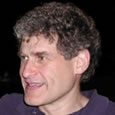
David Kleinfeld
Physics/Neurobiology, UCSDDavid Kleinfeld received his Ph.D. from UCSD and was a Member of Technical Staff at the former AT&T Bell Laboratories prior to coming to UCSD.
Dr. Kleinfield's laboratory is interested in two problems in neurobiology: (1) Active sensing, where we addresses how the vibrissa sensorimotor system of rodents extract a stable world view through their actively moving sensors, and (2) Neocortical microcirculation and neurovascular control, which explores the topology, dynamics, and neuronal control of cortical blood flow at the level of large-scale vascular networks down to that of single microvessels.

Takaki Komiyama
Biology, UCSDTakaki grew up in Tokyo playing baseball. After graduating from the University of Tokyo, he joined a PhD program at Stanford, where he studied development of the fruit fly olfactory system in Liqun Luo's lab. He then moved on to Janelia Farm as a postdoc in Karel Svoboda's lab in December 2006 where he learned two-photon imaging and applied it in awake mice during learning. Takaki started at UCSD in September 2010.
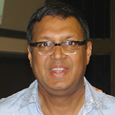
Deepak Kumar
Computer Science, Bryn Mawr CollegeDeepak Kumar is Professor of Computer Science at Bryn Mawr College. His research is in the areas of Artificial Intelligence (Knoweledge Representation and acting in belief-desire-intention Architectures, Developmental Robotics) and Computer Science Education. He has been involved with the creation of a new computer science program at Bryn Mawr College that has incorporated several innovative approaches in the design of computing curricula including the use of personal robots, and interdisciplinary minors in computing. He is a member of the ACM Education Council and IFIP Technical Committee on Informatics and ICT in Higher Education.

Ayse Saygin
Cognitive Science, UCSDProfessor Saygin received her PhD in Cognitive Science from UCSD, and has an MSc in computer science and BSc in mathematics. After a Marie Curie postdoctoral fellowship at the Institute of Cognitive Neuroscience, University College London, she returned to UCSD as faculty in the fall of 2009.
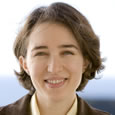
Tatyana (Tanya) Sharpee
Computational Neurobiology Laboratory, Salk InstituteSharpee received her Ph.D. in Physics at Michigan State University and was a Sloan-Swartz Postdoctoral Fellow at the University of California, San Francisco. As an associate professor in the Computational Neurobiology Laboratory at the Salk Institute, Sharpee and her team work on theoretical principles of how the brain processes information. In 2013, Sharpee recieved a CAREER award from the National Science Foundation (NSF) to fund research in her lab.
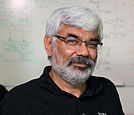
Shankar Subramaniam
Bioengineering, UCSDShankar Subramaniam is currently a Professor of Bioengineering and Chemistry and Biochemistry at the University of California at San Diego. He also has a joint appointment at the San Diego Supercomputing Center. Before he moved to UCSD (fall '99), he was the Director of the computational biology group at the National Center for Supercomputing Applications (NCSA) and a Professor of Biochemistry, Molecular and Integrative Physiology, Chemical Engineering and Electrical & Computer Engineering at the University. His present research focuses several important aspects of computational biology. These include web-based approaches to bioinformatics, going from protein sequence to structure and function and studying protein recognition and function. In 2013, Subramaniam was inducted as a Fellow into the American Association for the Advancement of Science.

Wojciech Szpankowski
Computer Science, Purdue UniversityBefore coming to Purdue, W. Szpankowski was Assistant Professor at the Technical University of Gdansk, and in 1984 he was Assistant Professor at the McGill University, Montreal. During 1992/1993 he was Professeur Invité at INRIA, Rocquencourt, France. His research interests cover analysis of algorithms, data compression, information theory, analytic combinatorics, random structures, networking, stability problems in distributed systems, modeling of computer systems and computer communication networks, queueing theory, and operations research. His recent work is devoted to the probabilistic analysis of algorithms on words, analytic information theory, and designing efficient multimedia data compression schemes based on approximate pattern matching. He is a recipient of the Humboldt Fellowship. He has been guest editors for special issues in IEEE Transactions on Automatic Control, Theoretical Computer Science, Random Structures & Algorithms, and Algorithmica. He edited a special issue on "Analysis of Algorithms" in Algorithmica. He serves on the editorial boards of Theoretical Computer Science, Discrete Mathematics and Theoretical Computer Science, and book series Advances in the Theory of Computation and Computational Mathematics. Currently the Director for Center for Science of information.
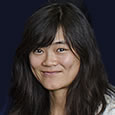
Zhiying Wang
Electrical Engineering, Stanford/MITZhiying Wang received a B.S. degree from Tsinghua University in 2007, and an M.S. degree from CalTech in 2009, and finished her Ph.D. in Electrical Engineering from CalTech in July, 2013. Her research interests include information theory, error-correcting codes and coding for storage devices.
As a CSoI Postdoctoral Research Fellow, Zhiying will be working primarily with Dr. Oligica Milenkovik (UIUC), Dr. Tsachy Weissman (Stanford) and Dr. Nancy Lynch (MIT). Her work will concentrate on theoretical and applied aspects of coding for the storage and efficient processing and querying of large amounts of data. This research directly addresses one of the Center’s grand challenges in the knowledge extraction research thrust.

